Report

The Image of Israel on X and TikTok After 10/7: This study investigates the rise of antisemitism and negative sentiments toward Israel and Jews in online discourse following the October 7, 2023, Hamas massacre, with a focus on the platforms X (formerly Twitter) and TikTok. Findings reveal a significant increase in antisemitic content in top tweets on X. On TikTok, random posts with the keyword “genocide” predominantly accused Israel of genocide, while those featuring “Israel” displayed more diverse themes and sentiments. Thematic analysis highlights the Gaza war as a dominant subject across both platforms, illustrating a strong alignment between antisemitism and anti-Israel sentiment in online discussions. This study underscores the role of social media algorithms in amplifying accusatory content against Israel.
Experience Report on TiKTok's Research Archive: While TikTok promises that their archive is a powerful resource for researchers, our experience has been anything but. Please find our report here: "TikTok’s Archive for Researchers—A Tool in Name Only? An Experience Report."
Annotating live messages on social media. Testing the efficiency of the AnnotHate – live data annotation portal (March 2024) Journal of Computational Social Science
Access Full Article
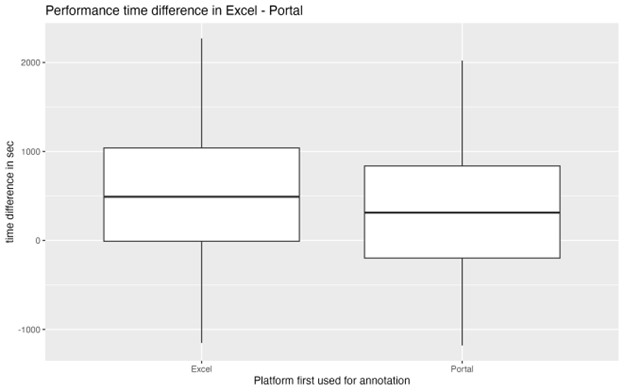
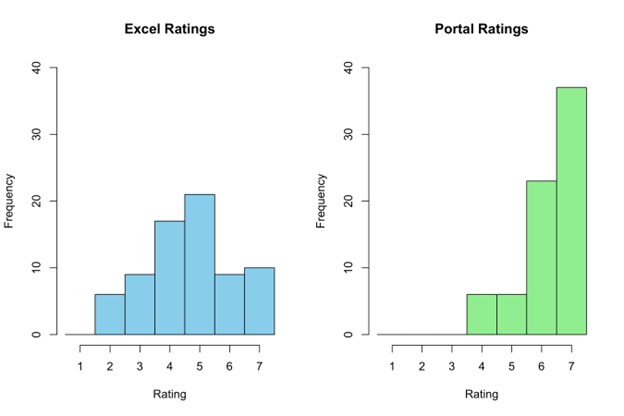
Please find our annotated datatsets on antisemitism, hate speech and bias against Asians, Blacks, Jews, Latines, and Muslims, which now contains about 11,000 messages from Twitter. These datasets can be downloaded on Zenodo and Hugging Face.
Published
Published
"Holocaust Distortions on Social Media After 10/7. The Antisemitic Mobilization" (Nov 2023) Humanities Commons. Access full article here.
Featured Article about our annotation team
IHRA published a featured article about our research project. There is still a long way to go before we can automatically and accurately detect antisemitic and other biased messages, but reliable datasets are an important step.
Publication: We recently published two datasets on Zenodo and we hope to expand them soon. They were tested in our international Datathon & Hackathon competition earlier this year, where teams of students competed to automatically identify biased messages.
Dataset 1: “Antisemitism on Twitter: A Dataset for Machine Learning and Text Analytics” (see also the corresponding paper “Antisemitic Messages? A Guide to High-Quality Annotation and a Labeled Dataset of Tweets”)
Dataset 2: “Hate Speech and Bias against Asians, Blacks, Jews, Latines, and Muslims: A Dataset for Machine Learning and Text Analytics”
We would like to thank again our cooperating partners and sponsors for the Datathon & Hackathon competition.
Published
" The value of manual annotation in assessing trends of hate s peech on social media: was antisemitism on the rise during the tumultuous weeks of Elon Musk's Twitter takeover?" (July 2023) Journal of Computational Social Science. Access the full article here.
In this paper, we argue that we need new and mixed methods to assess online antisemitism and hate speech in general, using the tumultuous weeks following the takeover of Twitter by Elon Musk in the fall of 2022 as a case study.
We observe a significant escalation in both the volume and proportion of antisemitic tropes in conversations about Jews on Twitter during this time.
But the picture is complex. Many users also posted messages that oppose and call out antisemitism, and it is unclear whether Twitter's policy changes during this period had any direct impact on the increase in antisemitic messages. It seems that the problem is much bigger and has deeper roots in our society. One of the main drivers was Ye's (Kanye West) antisemitic comments, which had a mainstreaming effect on the spread of antisemitic tropes. While white nationalist fringe groups capitalized on this sentiment in an online and offline campaign promoting the phrase "Kanye is right about the Jews," many Twitter users believed that Ye had a point in calling out alleged Jewish power, as evidenced by popular retweets.
Thanks to Katharina Soemer, our research team, and our generous donors who have made this research possible!
Published
" Antisemitic Messages? A Guide to High-Quality Annotation and a Labeled Dataset of Tweets." This dataset will contribute to the automated detection of antisemitic content on social media. See the full dataset and accompanying publication for more information.

Research Report: BIAS Against Asians, Black People, Hispanics/Latinos, Jews, and Muslims on Twitter by Dr. Gunther Jikeli, Elisha S. Breton, and Seth Moller (December 15, 2022).

Recently submitted paper: Conversations About Jews on Twitter: Recent Developments Since Elon Musk's Takeover by Gunther Jikeli and Katharina Soemer
Research Report:
Our study on antisemitism in mainstream Twitter conversations was just published. The percentage of antisemitic tweets in conversations about Jews has been staggering, based on representative samples of 2019 and 2020.
We presented a follow-up study in September 2022 at the launch conference of the London Centre for the Study of Contemporary Antisemitism .
We can show that not only the volume but also the percentage of antisemitic content was growing on Twitter in conversations about Jews from 2019 to 2020, despite claims from Twitter that they were cracking down on antisemitism and Holocaust denial. In 2019, 6.9 percent of all conversations about Jews on Twitter were antisemitic, that is, 849,253 antisemitic tweets. In 2020, this rose to a staggering 10.7 percent, that is, 1,531,912 antisemitic tweets, 4,197 per day in 2020 or one antisemitic tweet every 20 seconds in 2020– only in conversations that include the word “Jews.” Antisemitic content was mostly related to conspiracies of Jewish global dominance, the Middle East conflict, and the Holocaust. Antisemitic posts were even more frequent in conversations about Israel, every 5 seconds an antisemitic tweet in 2020, totaling over 6.5 million, or 14% of all tweets about the Jewish State. However, antisemitic content seems even more prevalent on other platforms. Twitter is just more transparent for research.
Thanks to all ISCA research lab members for enabling us to do this research!
Published

" Differences Between Antisemitic and Non-Antisemitic English Language Tweets," by Gunther Jikeli, David Axelrod, Rhonda K. Fischer, Elham Forouzesh, Weejeong Jeong, Daniel Miehling, and Katharina Soemer. In: Computational and Mathematical Organization Theory, September 2022.

"Towards an AI Definition of Antisemitism?" by Günther Jikeli, Damir Cavar, Weejeong Jeong, Daniel Miehling, Pauravi Wagh, and Denizhan Pak. In: Antisemitism on Social Media, ed. by Monika Hübscher and Sabine von Mering. Routledge 2022.
Research report
"BIAS Against Asians, Blacks, Hispanics/Latinx, Jews, and Muslims on Twitter" (see here or download here), a collaborative research project with 140 students. We manually annotated and classified 10,000 tweets in representative samples.
In the news
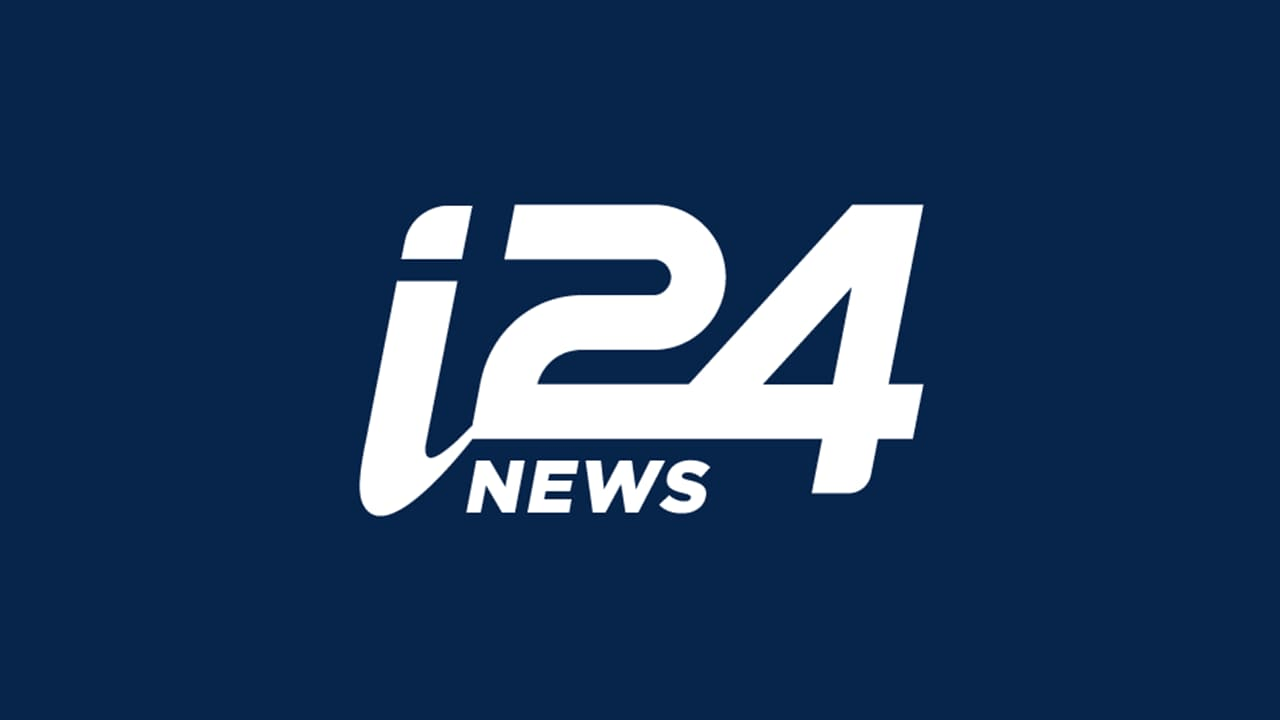
'Antisemitism on Twitter has risen dramatically: study' in i24 News, September 15, 2022.
‘Twitter is Cesspool of Antisemitic Tweets, Says New Study' by Dion J. Pierre in The Algemeiner, September 12, 2022.
‘Hate Is More Engaging’: Researchers Make Headway Measuring Antisemitic Propaganda on Social Media by Ben Cohen in The Algemeiner, July 19, 2021.
Presentation at the annual conference of the Center for Informed Democracy & Social - cybersecurity (IDeaS) at Carnegie Mellon University, July 12-13, 2021.
Gunther Jikeli and Rhonda K. Fischer. What Distinguishes Disseminators of Antisemitic Tweets and What Themes Do They Use?
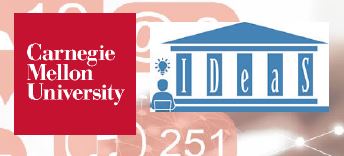
Presentation at the annual conference of the Center for Informed Democracy & Social - cybersecurity (IDeaS) at Carnegie Mellon University, July 12-13, 2021.
Technology demonstration "Annotation Tool for Tweets" by Gunther Jikeli, Deepika Awasthi, Denizhan Pak and Daniel Miehling
Gunther Jikeli, Deepika Awasthi, David Axelrod, Daniel Miehling, Pauravi Wagh and Weejeong Joeng. Detecting Anti-Jewish Messages on Social Media. Building an Annotated Corpus That Can Serve as A Preliminary Gold Standard. In: Proceedings of the ICWSM Workshops, June 2021, DOI: 10.36190/2021.14
Presentation at the International Workshop on Cyber Social Threats, June 7, 2021, co-located with the 15th International AAAI Conference on Web and Social Media.
Gunther Jikeli, Deepika Awasthi, David Axelrod, Daniel Miehling, Pauravi Wagh and Weejeong Joeng: ”Detecting Anti-Jewish Messages on Social Media. Building an Annotated Corpus That Can Serve as A Preliminary Gold Standard”
In the news
In Indiana University's "Research Impact": Connecting online hate speech to offline events , January 2021.
Event
Datathon and Hackathon on Antisemitism , Summer 2020. Please find a report on the project here , including an an example of identifying antisemitic Tweets with Natural Language Processing. The awards ceremony for all participants included keynotes by professors Lee Feinstein and Elaine Monaghan.
In the news
"Antisemitism Datathon and Hackathon event challenges students to grow socially and technologically" by Niha Alasapuri, July 24, 2020.
Gunther Jikeli, Damir Cavar, Daniel Miehling. Annotating Antisemitic Online Content. Towards an Applicable Definition of Antisemitism. In arXiv.org, September 2019, DOI10.5967/3r3m-na89, https://arxiv.org/abs/1910.01214
In the news
Students research ways to counter antisemitism in social media by Steve Hinnefeld, August 31, 2017.
Report
As part of the U.S. State Department's Diplomacy Lab initiative, 15 students conducted original research and produced a 25-page report, titled "Best Practices to Combat Antisemitism for Social Media."
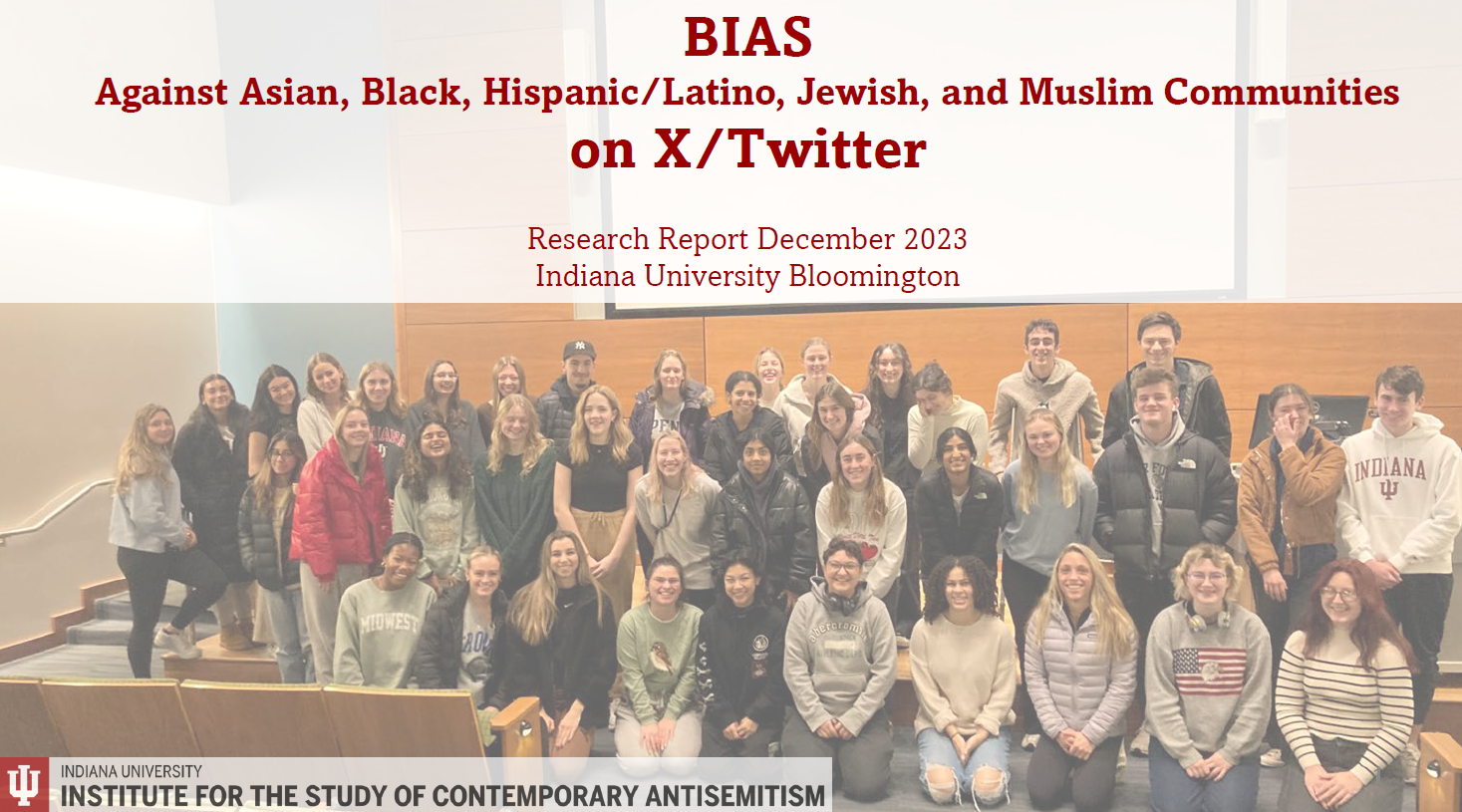

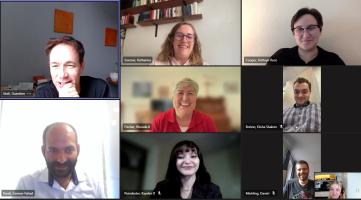
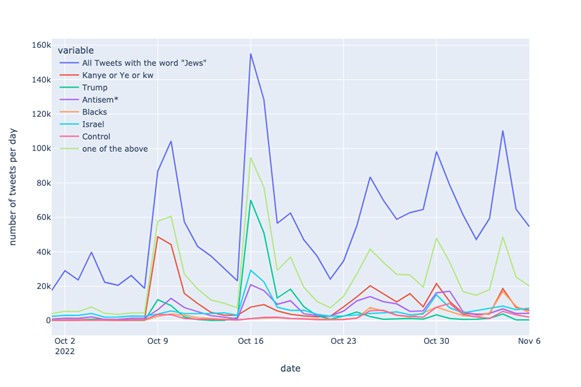
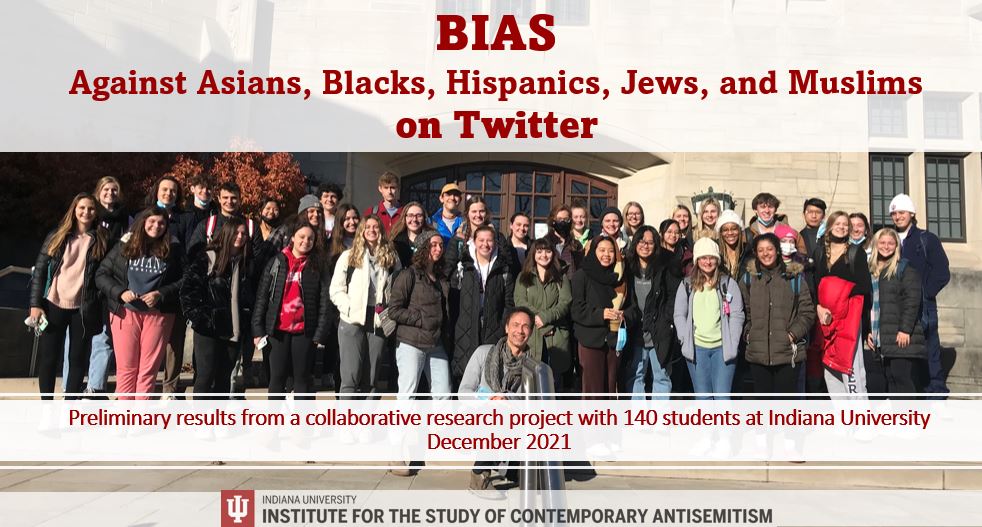



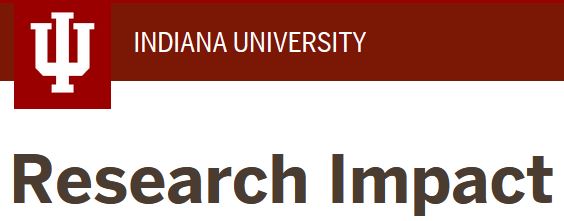
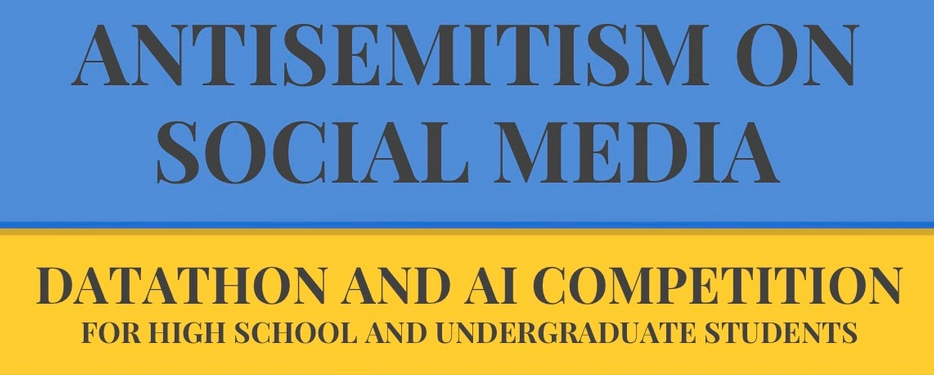
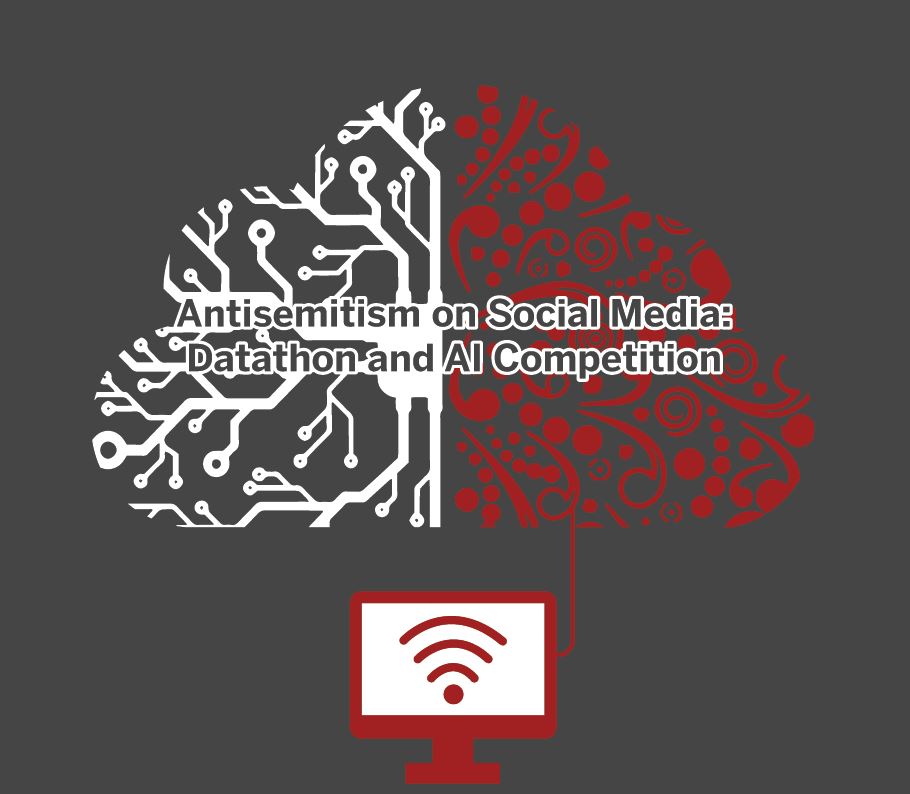

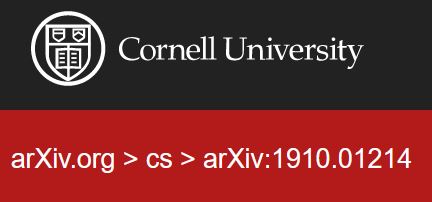

 The College of Arts
The College of Arts